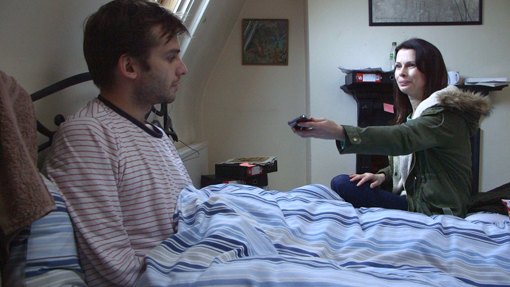Surviving PhDs
Stephen Engelhard is the founder of Angel Productions, and produces and directs its videos for universities. He explains how The PhD Survival Video was produced.
 About the author: Stephen Engelhard has a postgraduate diploma in journalism studies, and worked as a researcher, producer and director in broadcast television for many years (ITV and Channel 4). He started Angel Productions to apply his experience to training and education. Since 2007 his main project has been a continuing series of videos to support the training of doctoral students, now used in more than 70 UK institutions.
About the author: Stephen Engelhard has a postgraduate diploma in journalism studies, and worked as a researcher, producer and director in broadcast television for many years (ITV and Channel 4). He started Angel Productions to apply his experience to training and education. Since 2007 his main project has been a continuing series of videos to support the training of doctoral students, now used in more than 70 UK institutions.
‘Don’t you know that nobody’s attention span for videos is longer than three minutes?’ ’How can a mere half hour video do justice to a subject like the mental health of PhD students?’ ’If you present such a bleak view, your video will just frighten people off from starting a PhD.’ ’There’s no point in a video on this subject unless it shows how people are struggling.’
One of the joys of producing training videos is being showered with well-intentioned, contradictory advice. To navigate through such contradictions, the producer has to fall back on experience. When we made The PhD Survival Video it was to be the eighth video in a series we make for universities, so there were plenty of lessons to be learned from the back catalogue.
… we sought to address the epidemic of stress, isolation, emotional and mental health problems being reported in HE
People with the concentration span to devote at least four years to a PhD can certainly be persuaded to watch half-hour videos – if the content addresses their concerns and is well presented. A short video is never enough to solve weighty problems, but can motivate and inform its audience and signpost sources of help for further action. As for putting off students by presenting a bleak view of doctoral study, we did have a balance to strike.
The video would only be seen, and paid for, if universities wanted to buy it for their staff and students, so we were not in the business of frightening students off. But we were seeking to address a serious issue: the epidemic of stress, isolation, emotional and mental health problems being reported in higher education. And universities, of course, are as concerned as anyone else, for the welfare of researchers and the completion of PhDs.
The subject came up as a candidate for video treatment through the Guardian Higher Education Network. A blog published there by an ‘Anonymous Academic’ in March 2014 describing a ‘culture of acceptance’ of mental health problems for research students, attracted record numbers of comments and clearly struck a chord. The previous videos in our series had mainly focused on the practical and academic skills for undertaking a research degree, but clearly there was a story to be told about the emotional journey as well, and this was the time to tell it.

 Learning on Screen
Learning on Screen